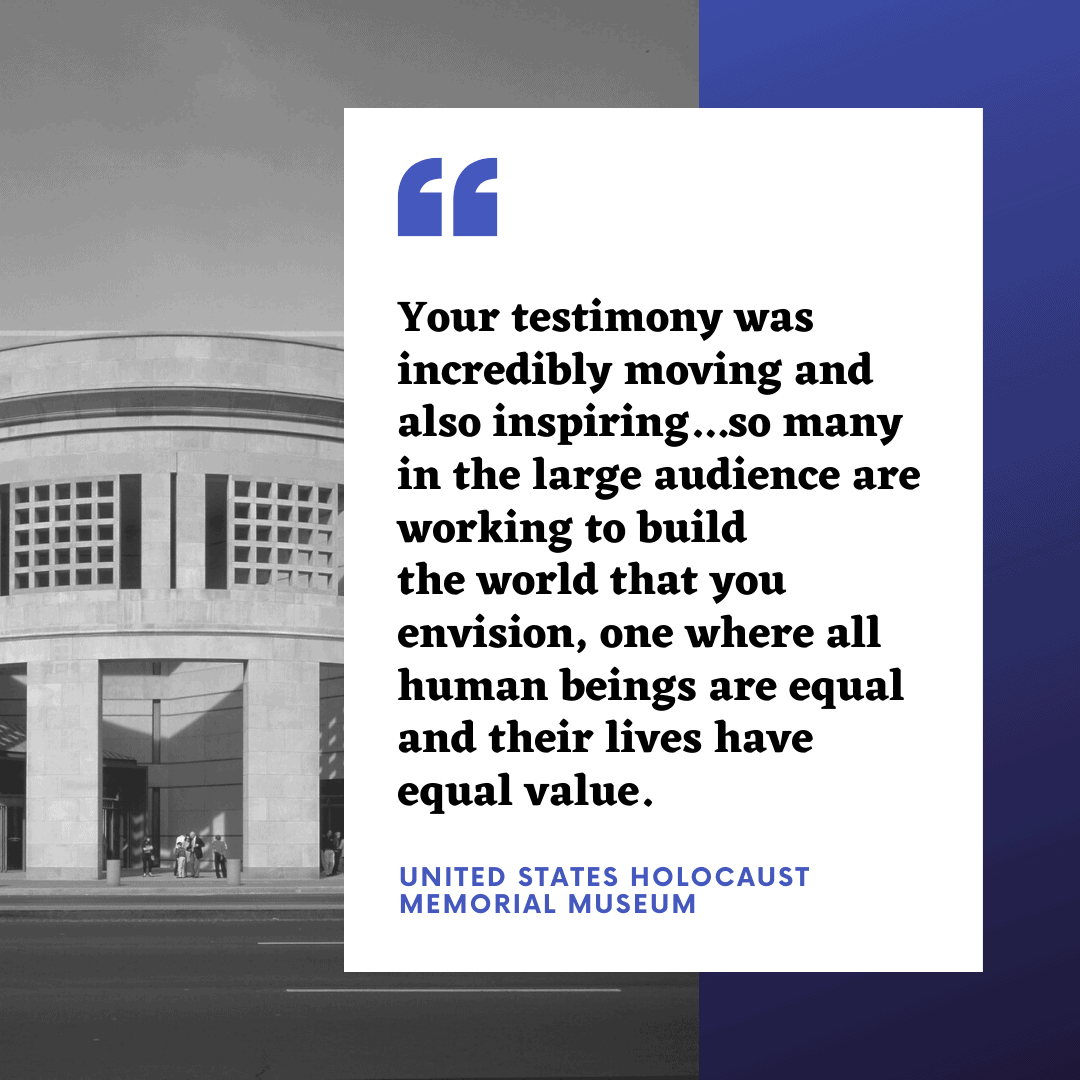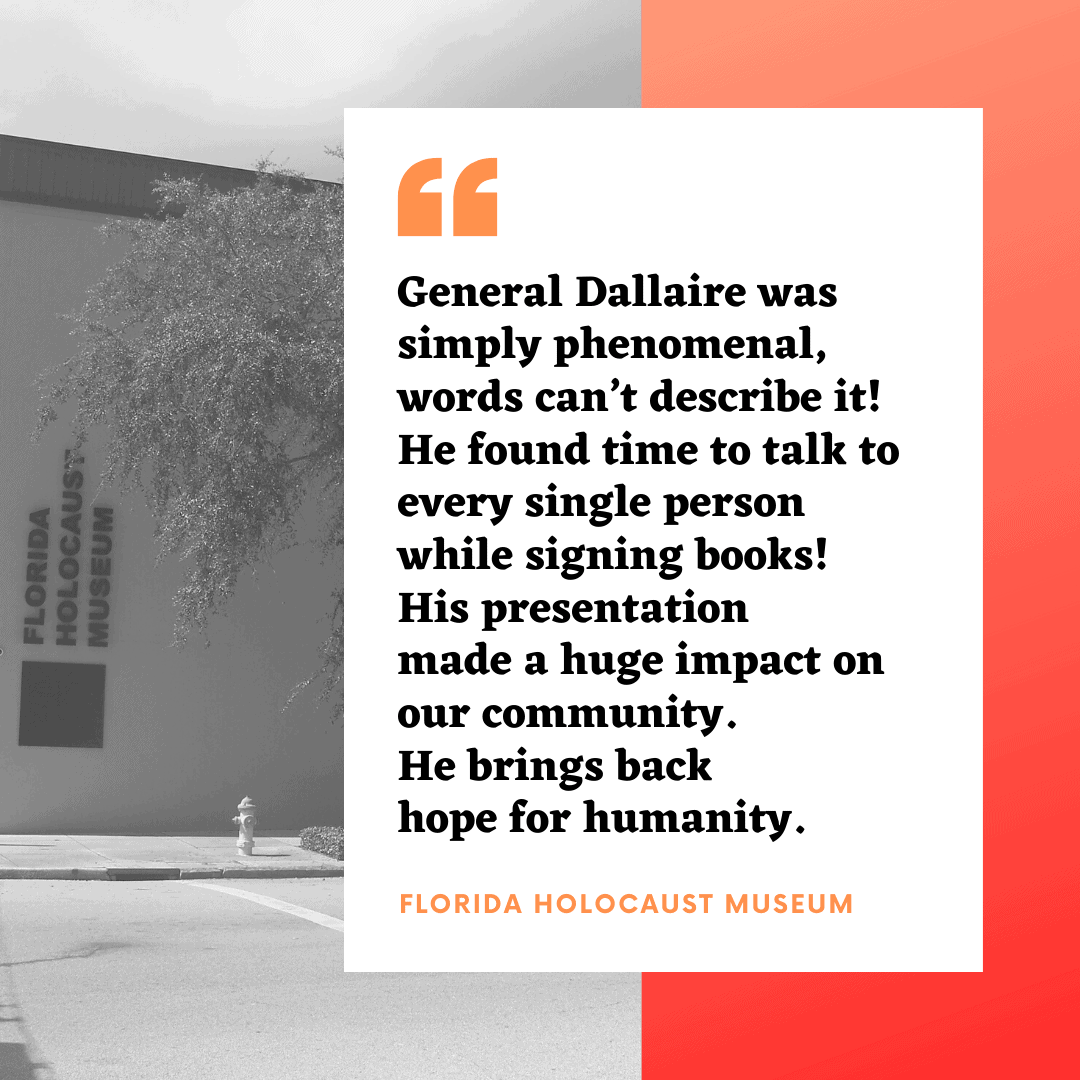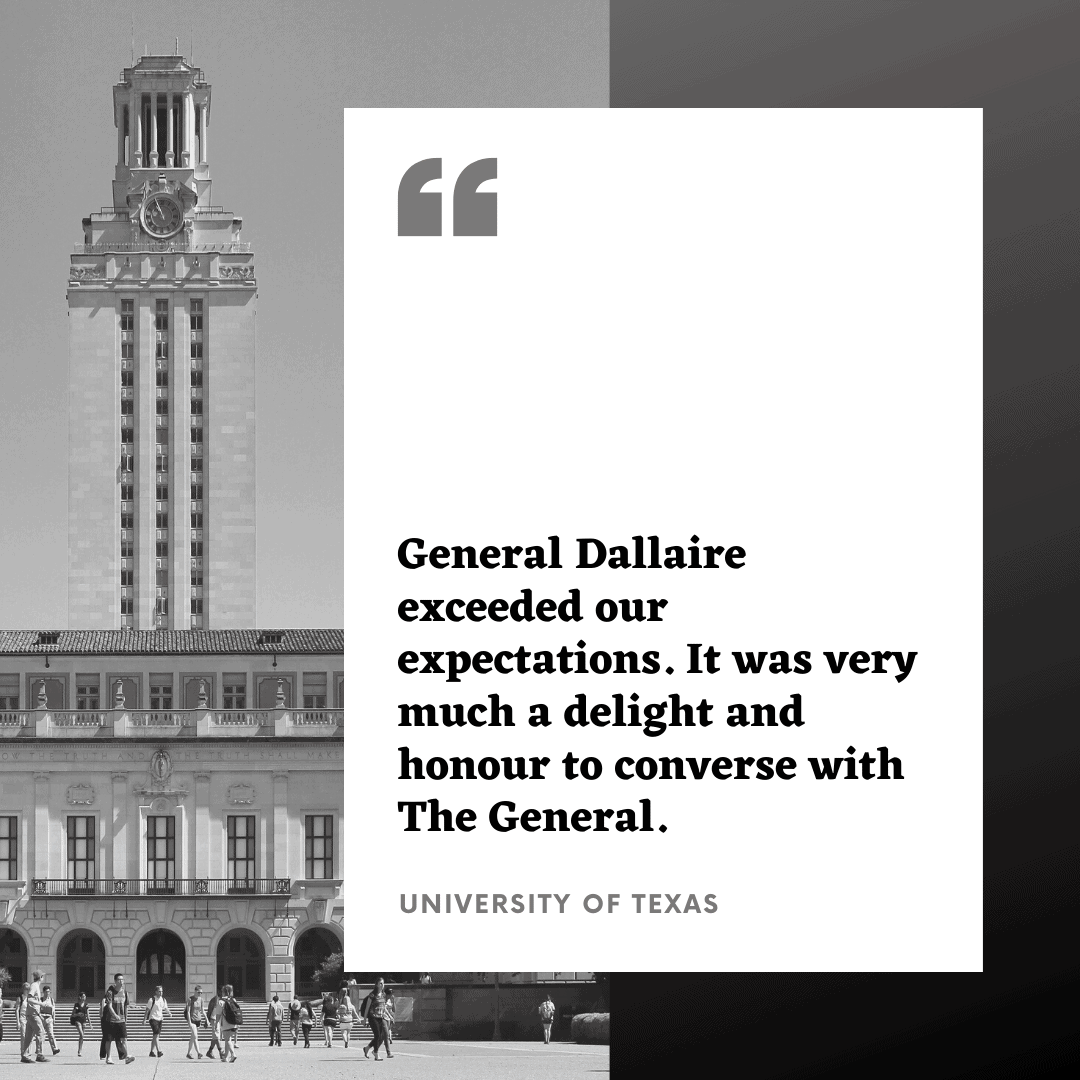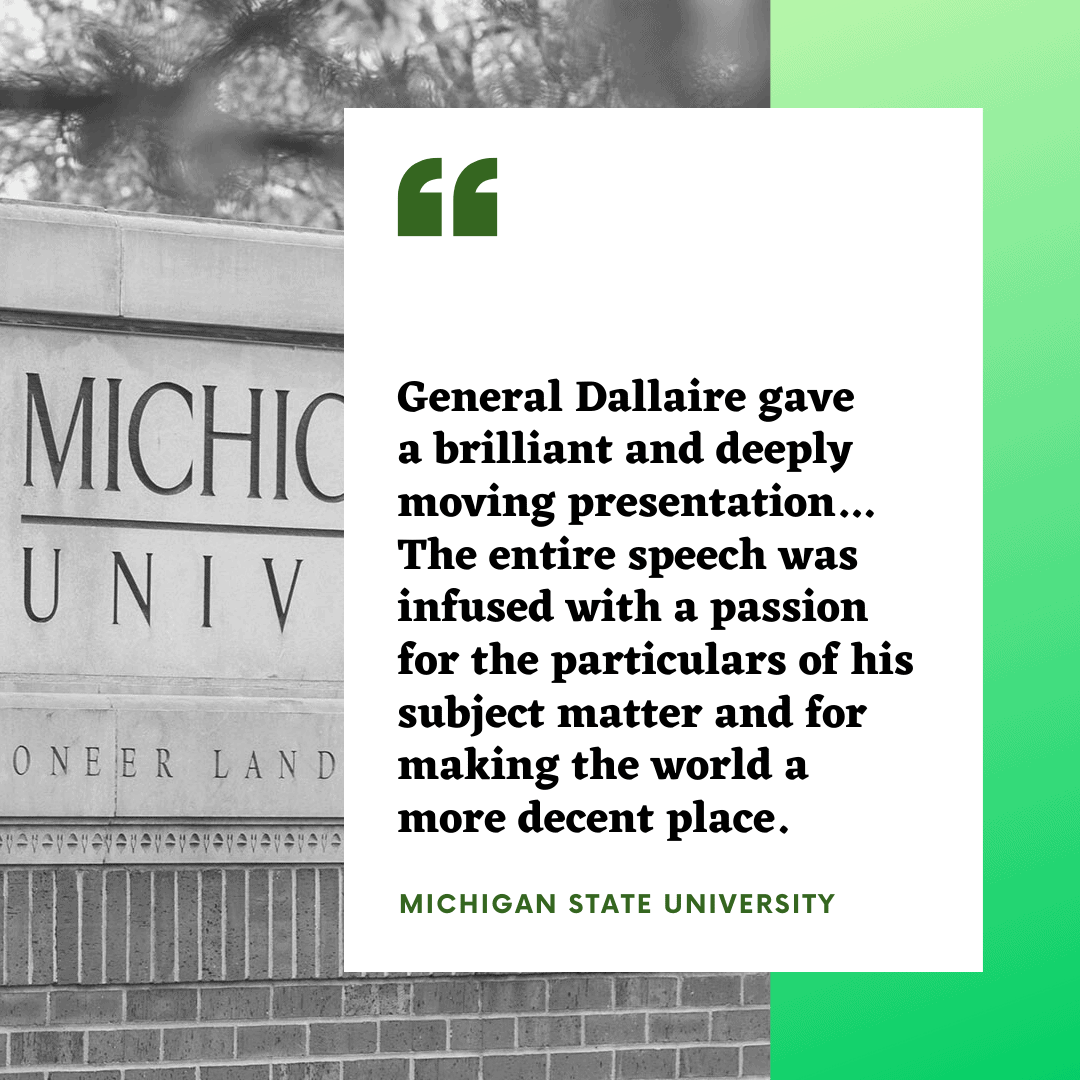Rwanda: 30 Years On
As the leader of the United Nations Assistance Mission in Rwanda (UNAMIR) prior to and during the 1994 genocide, General Dallaire warned the UN about the impending catastrophe. At the time, world leaders were more concerned about peacekeeper casualties than those of the civilian population. The resulting decision from his UN command was to reject calls for additional resources and to withdraw forces immediately.
He, along with a small contingent of soldiers and military observers, disobeyed that order and remained in Rwanda to protect those who sought refuge with the UN forces. He and his unit nevertheless managed to protect more than 30,000 lives.
The genocide in Rwanda ended up claiming more than 800,000 lives. After the atrocities of Holocaust, the international community said 'Never Again,' and yet we failed to prevent this atrocity.
What did we learn and how can we better deter future genocide?
It's important we look back, now, more than ever. 2019 marked 25 years since the 1994 Rwandan genocide. 2020 marks 75 years since the liberation of Auschwitz. Time has passed, yet we're still seeing mass-scale persecutions of people such as the Rohingya in Myanmar and the Uyghurs in China.
At a time when society seems as divisive as ever, learning from our past can help unite.






